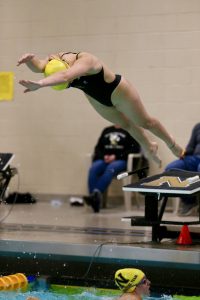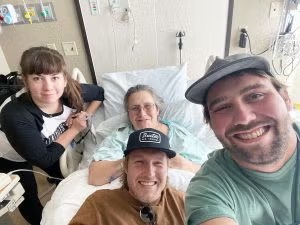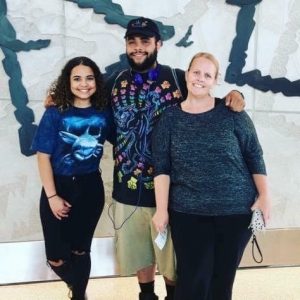Using Spinal Cord Stimulation to Fight Pain: Bill’s Story
March 9, 2023
By: Riverview Health
Categories: In Our Community, Patient Story
Tags: Cancer, Diabetes, interventional pain, neuropathy, pain management
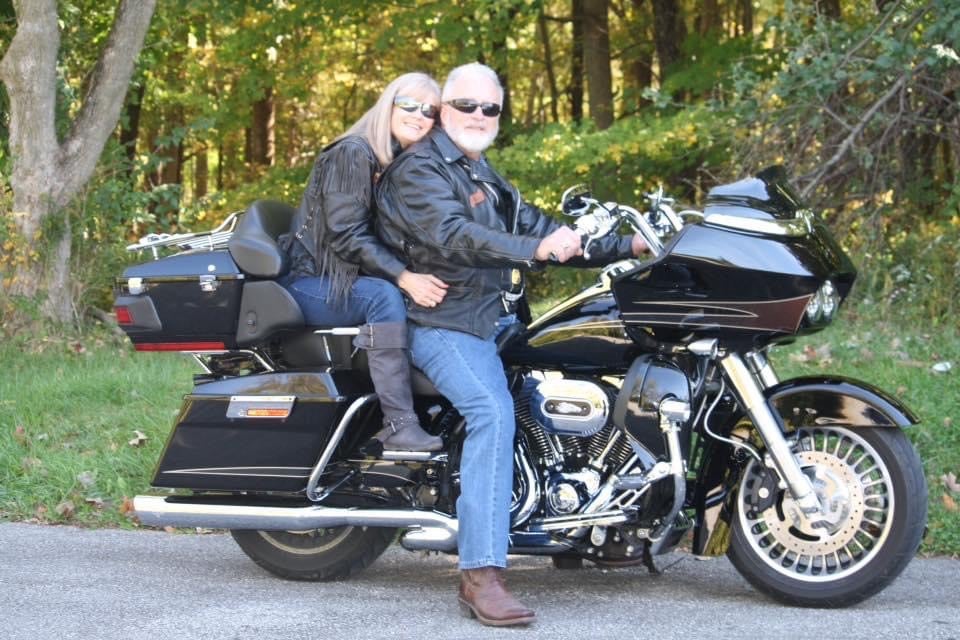
Helping people is what Bill Chaulk does. At 67, he is now retired, but still volunteers his time at the Salvation Army Harbor Light Center where twice a month he takes a team to minister and perform worship concerts. Prior to retirement, Bill worked at the same location for ten years as an education coordinator helping individuals struggling with addiction.
Unfortunately, a cancer diagnosis and the accompanying neuropathy from the treatment slowed Bill down dramatically. Bill also has diabetes, which further worsened the condition.
“For me, neuropathy felt like a jolting seizure of the nerve—it is a fiery feeling, like your foot has gone to sleep. You lose balance and you don’t get all the information from your brain to your feet anymore,” Bill said. “It is in my hands, too, but not as severe as in my feet.”
The pain became so intense that Bill couldn’t even stand his sheets to touch his feet at night. He was also taking a lot of prescription pain medications to combat the neuropathy, something he disliked given his previous experience working at an addiction center.
Bill knew he needed a unique answer to his pain, and a referral to Riverview Health Pain Management Center in Westfield was the start to that answer.
Once referred, Bill was seen by Aaron Nelson, DO, a pain management specialist.
“Bill is very bright and had a good understanding of what his pain generators were—but he was also very realistic,” Dr. Nelson said. “He was also cognizant of the things that this pain has taken from him because it had become so bad.”
Bill told Dr. Nelson that his pain had gotten to the point where he was going to have to stop volunteering and ministering.
“That bothered me tremendously because he seemed like a very heartfelt and passionate teacher. He does what he does to help make a difference for other people, and the idea of his pain being bad enough to take that away from him and the people he teaches was a very terrible idea,” Dr. Nelson said.
Dr. Nelson suggested Bill consider a Medtronic spinal cord stimulator to help combat his neuropathy pain. A non-narcotic option, a spinal cord stimulator works by emitting an electrical field, which in turn interrupts pain signals.
The stimulator is surgically placed on the back of the spinal cord, where the majority of the body’s sensory columns are located. When pain signals are detected, the stimulator creates a small electrical field to interrupt it. For the patient, the pain signals are interchanged with a dull, vibrating sensation that becomes much like white noise.
Before the stimulator is surgically placed, Bill underwent a thorough evaluation, which is required for all patients. Part of this evaluation was an interview with a clinical psychologist to ensure he had good comprehension of the causes of his pain and a realistic goal regarding relief. The psychologist also looks for undiagnosed or undertreated depression in patients, which can greatly alter the way a pain diagnosis is treated.
After passing his pre-op evaluation, Bill underwent a trial period to give the spinal stimulator a test drive before he had it surgically placed.
“Bill came in for his trial appointment, and underneath X-ray guidance, I slid in the leads of the stimulator onto the back of his spinal cord. I positioned them to cover up and interrupt all the pain,” Dr. Nelson said. “For the trial, I put a little medical super glue at the skin and a sterile dressing on the outside. The patients then have a week with the system to see what their life is like it before they have to make a final decision.”
During this trial week, Dr. Nelson encourages his patients to put the system to the test.
“I am a huge function guy, so it is very important to me that my patients are not just not hurting. I want them back doing the things that make them who they are,” Dr. Nelson said.
Bill put the stimulator to the test by completing a concert at the drug rehabilitation center. He was able to perform without pain and was thrilled. Bill also had improved sleep.
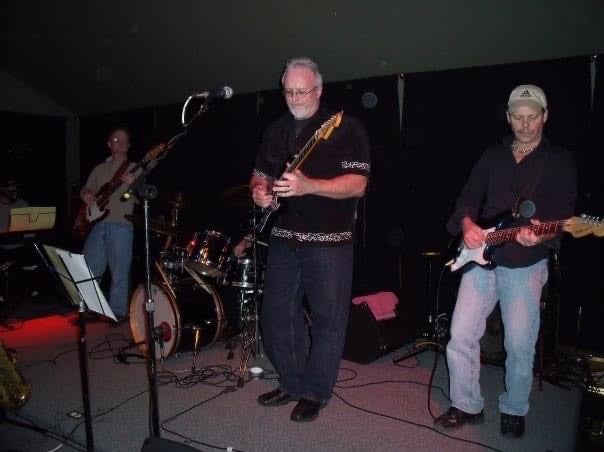
But the reduced pain wasn’t the biggest thing Dr. Nelson was excited about.
“By far what is most important to me was that Bill was going to be able to do what he loves again. He does something that makes a difference to all these people purely because he loves it. If he couldn’t do that anymore, how many people would be impacted,” Dr. Nelson said. “After the trial, Bill basically asked, ‘How fast we can get a system implanted?’”
Since the permanent placement of the spinal stimulator, Bill has reported a night and day difference.
“I’ve cut my medications down to a quarter of what I was taking previously, and there are some days I take nothing, which was unheard of before the procedure,” Bill said.
Bill has also been able to revisit his love of weightlifting thanks to reduced pain. He hopes to rebuild his strength in preparation for a motorcycle trip to Canada during the summer of 2023.
Overall, Bill is feeling grateful that he found a way to manage his neuropathy and get back to living the life he loves.
“My experience with Dr. Nelson was awesome,” Bill said. “He was humble when he spoke, but he was also confident. I felt really sure he was going to help me, and he made you feel like he cared and brought us a lot of hope. I was able to give him a lot of trust, which is what you want when someone is messing with your spine. I’ve been blessed beyond belief with the outcome physically and how we were treated and encouraged.”


